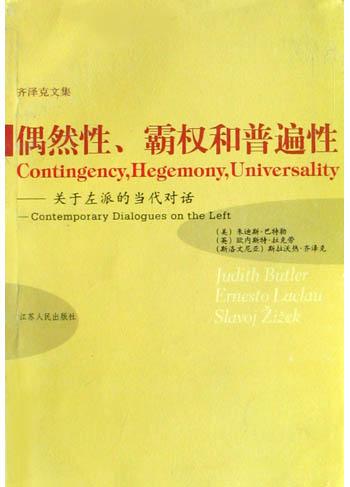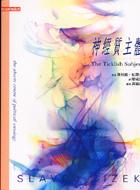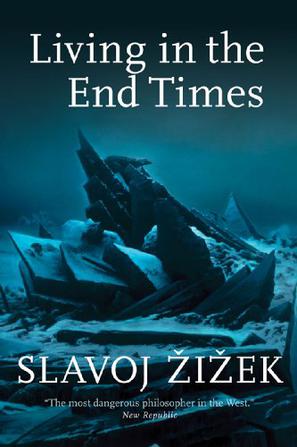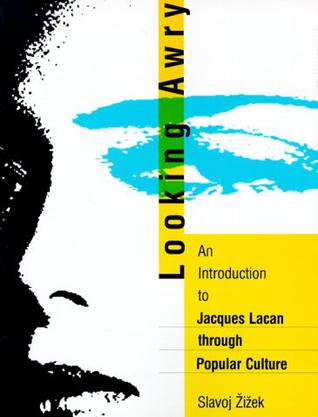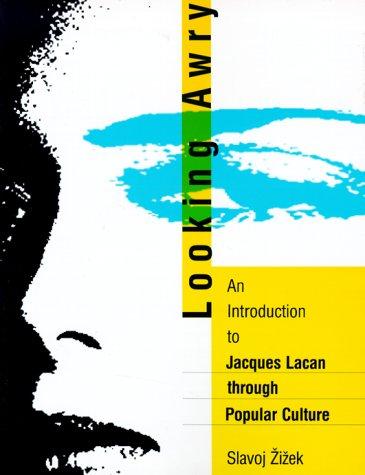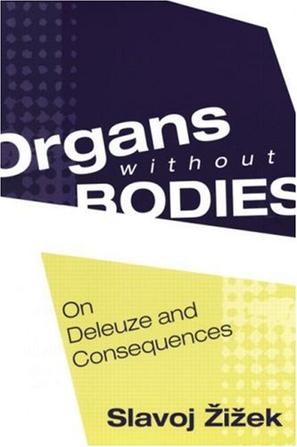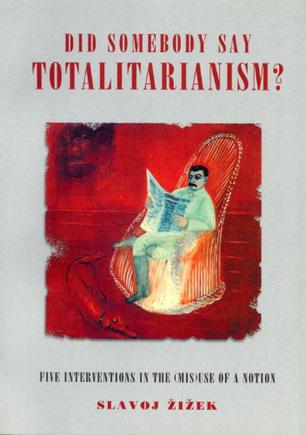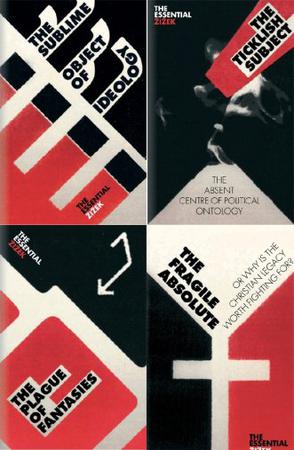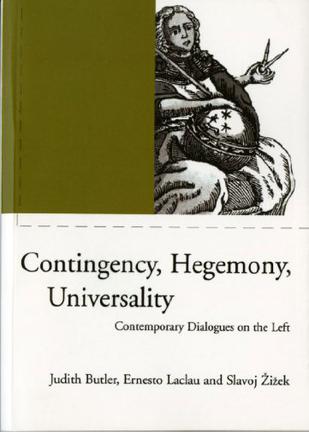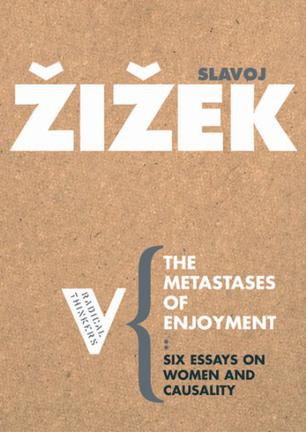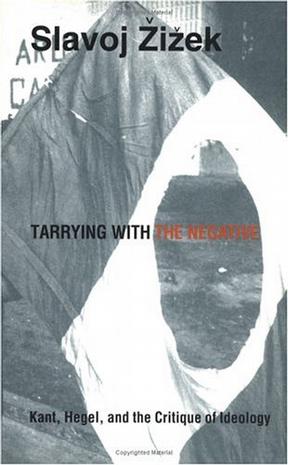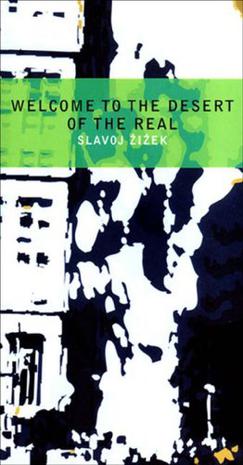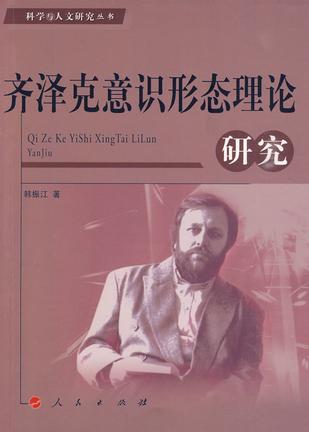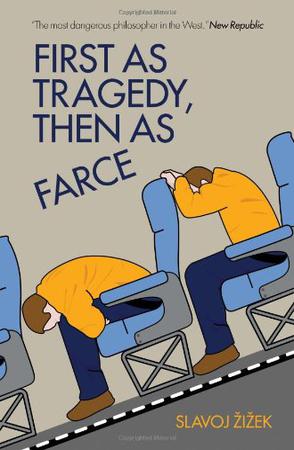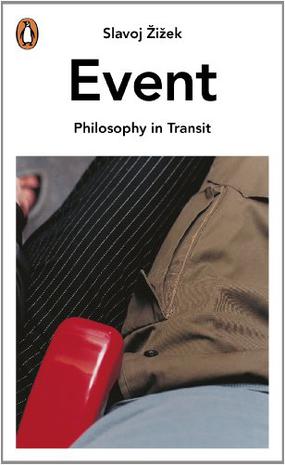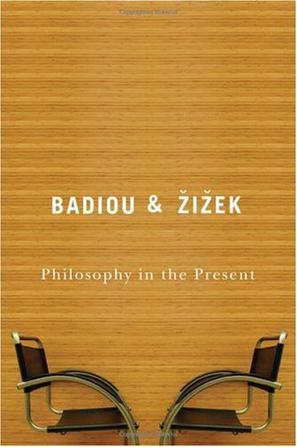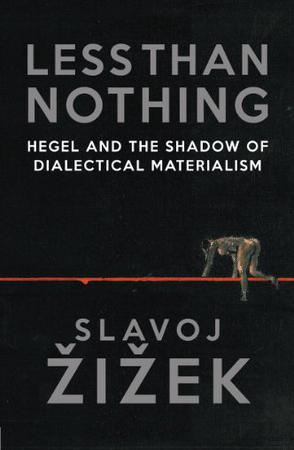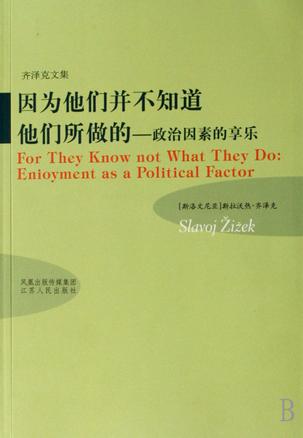欢迎来到相识电子书!
标签:齐泽克
-
偶然性、霸权和普遍性:关于左派的当代对话
葛兰西霸权观念的当代遗产是什么?既然普遍性的虚假版本已被彻底批判,那应该如何去重新阐述它?在这一彻底颠覆性的项目中,巴特勒、拉克劳和齐泽克这三位在国际学术中以激进风格著称的当红明星就当代哲学和政治学的中心问题进行了对话。他们的论文按照三组彼此对应的文章进行编排,涉及黑格尔在当代批判理论中的遗产、文化多元主义的理论困境、普遍性与特殊性之间的争论、全球化经济体系中左派的战略,以及后结构主义和拉康的精神分析对批判的社会理论的价值等等问题。在本书中,三位大家在尖锐地批评另两位的思想的同时奋力为自己的观点辩护。激烈的争论,严密的论证,精彩的辩护,大胆的揭露……本书充满了火药味。 -
神經質主體
紀傑克用幽默生動的筆調,將通俗易懂的流行文化捻成線頭輕巧穿過晦澀難解的拉岡精神分析理論的針眼,一進一出,貼合了當今左翼最激動人心的思想,也留下豐沛顯眼的論證。一個幽靈在西方學術界徘徊--笛卡兒主體的幽靈。為了對抗解構主義者與哈伯馬斯派、認知科學家與海德格派、女性主義者與新時代的蒙昧主義者,《神經質主體》在這個難以捉摸的主體當中,挖掘出顛覆性的核心,並在核心內部找到了真正的解放政治所不可或缺的哲學參照點。 -
Enjoy Your Symptom!
Slavoj Zizek, dubbed by the Village Voice "the giant of Ljubljana," is back with a new edition of his seriously entertaining book on film, psychoanalysis (and life). His inimitable blend of philosophical and social theory, Lacanian analysis, and outrageous humor are made to show how Hollywood movies can explain psychoanalysis-and vice versa using films such as Marnie and The Man Who Knew Too Much. -
Living in the End Times
There should no longer be any doubt: global capitalism is fast approaching its terminal crisis. Slavoj Zizek has identified the four horsemen of this coming apocalypse: the worldwide ecological crisis; imbalances within the economic system; the biogenetic revolution; and, exploding social divisions and ruptures. But, he asks, if the end of capitalism seems to many like the end of the world, how is it possible for Western society to face up to the end times? In a major new analysis of our global situation, Slavok Zizek argues that our collective responses to economic Armageddon correspond to the stages of grief: ideological denial, explosions of anger and attempts at bargaining, followed by depression and withdrawal. After passing through this zero-point, we can begin to perceive the crisis as a chance for a new beginning. Or, as Mao Zedong puts it, there is great disorder under heaven, the situation is excellent. -
Looking Awry
Slavoj Zizek, a leading intellectual in the new social movements that are sweeping Eastern Europe, provides a virtuoso reading of Jacques Lacan. Zizek inverts current pedagogical strategies to explain the difficult philosophical underpinnings of the French theoretician and practician who revolutionized our view of psychoanalysis. He approaches Lacan through the motifs and works of contemporary popular culture, from Hitchcock's Vertigo to Stephen King's Pet Sematary, from McCullough's An Indecent Obsession to Romero's Return of the Living Dead - a strategy of "looking awry" that recalls the exhilarating and vital experience of Lacan.Zizek discovers fundamental Lacanian categories the triad Imaginary/Symbolic/Real, the object small a, the opposition of drive and desire, the split subject - at work in horror fiction, in detective thrillers, in romances, in the mass media's perception of ecological crisis, and, above all, in Alfred Hitchcock's films. The playfulness of Zizek's text, however, is entirely different from that associated with the deconstructive approach made famous by Derrida. By clarifying what Lacan is saying as well as what he is not saying, Zizek is uniquely able to distinguish Lacan from the poststructuralists who so often claim him.Slavoj Zizek is a Researcher in the Institute of Sociology at the University of Ljubljana, Yugoslavia. His work has been published in France and in Yugoslavia where, running as a proreform candidate, he narrowly missed being elected to the presidency of the republic of Slovenia. -
Looking Awry
Slavoj Zizek provides a virtuoso reading of the psychoanalytic theory of Jacques Lacan through the works of contemporary popular culture, from horror fiction and detective thrillers to popular romances and Hitchcock films. 這本書比較淺易,而且對一些精神分析的基本術語如欲望、驅力、幻象等等都有一些容易捕捉的界定,堪稱齊澤克入門。 -
Organs without Bodies
The latest book by the Slovenian critic Slavoj Zizek takes the work of French philosopher Gilles Deleuze as the beginning of a dazzling inquiry into the realms of radical politics, philosophy, film (Hitchcock, Fight Club), and psychoanalysis. Of Organs without Bodies Joan Copjec (Imagine There's No Woman) has written: "With all his ususal humor and invention, Zizek -- the acknowledged master of the 180 degree turn -- here takes a trip into "enemy" territory to deliver Deleuze of a marvelously rebellious child, one that seriously challenges Deleuze's other progeny with a surprising but convincing bid for succession. Those who thought Deleuze's forward march into the future would follow a straight path are forced to rethink their stance. From now on all readings of Deleuze will have to take a detour through this important -- even necessary -- book." Eric Santner (On the Psychopathology of Everyday Life) describes Organs without Bodies as offering "an entirely new degree of conceptual clarity and political urgency. Through his deep engagement with the logic of Deleuze's project, Zizek opens up new possibilities of thought beyond the terms of the current political debates on globalization, democratization, war on terror. Once again, Zizek has produced an utterly timely and radically untimely meditation." Recently profiled in The New Yorker, and hailed by the Village Voice as "the giant of Ljubljana," Zizek is one of the most provocative and entertaining thinkers at work today. -
The Essential Zizek
Slavoj Zizek's work traverses the fields of philosophy, psychoanalysis, theology, history and political theory, taking in film, popular culture, literature and jokes - all to provide acute analyses of the complexities of contemporary ideology, as well as a serious and sophisticated philosophy. His recent films "The Pervert's Guide to the Cinema" and "Zizek!" reveal a theorist at the peak of his powers and a skilled communicator. Now Verso are making these four classic titles, that stand as the core of his ever-expanding life's work, available as new editions. Each are beautifully re-packaged, including new introductions from Zizek himself. Simply, they are the essential texts of Zizek's thought and thus Western thought. -
Contingency, Hegemony, Universality
What is the contemporary legacy of Gramsci's notion of Hegemony? How can universality be reformulated now that its spurious versions have been so thoroughly criticized? In this ground-breaking project, Judith Butler, Ernesto Laclau and Slavoj Zizek engage in a dialogue on central questions of contemporary philosophy and politics. Their essays, organized as separate contributions that respond to one another, range over the Hegelian legacy in contemporary critical theory, the theoretical dilemmas of multiculturalism, the universalism- versus-particularism debate, the strategies of the Left in a globalized economy, and the relative merits of post-structumalism and Lacanian psychoanalysis for a critical social theory. While the rigour and intelligence with which these writers approach their work is formidable, Contingency, Hegemony, Universality benefits additionally from their clear sense of energy and enjoyment in a revealing and often unpredictable exchange. -
The Metastases of Enjoyment
A disturbing and radical examination of the status of women and the role of violence in contemporary culture and politics. -
Tarrying with the Negative
In the space of barely more than five years, with the publication of four pathbreaking books, Slavoj Zizek has earned the reputation of being one of the most arresting, insightful, and scandalous thinkers in recent memory. Perhaps more than any other single author, his writings have constituted the most compelling evidence available for recognizing Jacques Lacan as the preemient philosopher of our time. In "Tarrying with the Negative," Zizek challenges the contemporary critique of ideology, and in doing so opens the way for a new understanding of social conflict, particularly the recent outbursts of nationalism and ethnic struggle. Are we, Zizek asks, confined to a postmodern universe in which truth is reduced to the contingent effect of various discursive practices and where our subjectivity is dispersed through a multitude of ideological positions? "No" is his answer, and the way out is a return to philosophy. This revisit to German Idealism allows Zizek to recast the critique of ideology as a tool for disclosing the dynamic of our society, a crucial aspect of which is the debate over nationalism, particularly as it has developed in the Balkans--Zizek's home. He brings the debate over nationalism into the sphere of contemporary cultural politics, breaking the impasse centered on nationalisms simultaneously fascistic and anticolonial aspirations. Provocatively, Zizek argues that what drives nationalistic and ethnic antagonism is a collectively driven refusal of our own enjoyment. Using examples from popular culture and high theory to illuminate each other--opera, film noir, capitalist universalism, religious and ethnic fundamentalism--this work testifies to the fact that, far more radically than the postmodern sophists, Kant and Hegel are our contemporaries. -
Violence
Philosopher, cultural critic, and agent provocateur Slavoj Ziand#382;ek constructs a fascinating new framework to look at the forces of violence in our world. Using history, philosophy, books, movies, Lacanian psychiatry, and jokes, Slavoj Ziand#382;ek examines the ways we perceive and misperceive violence. Drawing from his unique cultural vision, Ziand#382;ek brings new light to the Paris riots of 2005; he questions the permissiveness of violence in philanthropy; in daring terms, he reflects on the powerful image and determination of contemporary terrorists. Violence, Ziand#382;ek states, takes three forms--subjective (crime, terror), objective (racism, hate-speech, discrimination), and systemic (the catastrophic effects of economic and political systems)--and often one form of violence blunts our ability to see the others, raising complicated questions. Does the advent of capitalism and, indeed, civilization cause more violence than it prevents? Is there violence in the simple idea of "the neighbour"? And could the appropriate form of action against violence today simply be to contemplate, to think? Beginning with these and other equally contemplative questions, Ziand#382;ek discusses the inherent violence of globalization, capitalism, fundamentalism, and language, in a work that will confirm his standing as one of our most erudite and incendiary modern thinkers. -
齐泽克意识形态理论研究
《齐泽克意识形态理论研究》内容简介:斯拉沃热·齐泽克是当代著名的拉康派哲学家和文艺批评家他以晚期拉康精神分析学思想为基础,对话马克思主义及当代左翼思想,重新阐发了意识形态理论齐泽克以拉康”“欲望图表”为框架,依次阐释“能指”、“认同”、“幻象”、“快感”和“驱力”五个核心范畴,全面地展现其理论体系他认为,作为符号界的意识形态是多层次的:通过认同颖制主体的话语层,遮蔽社会对抗的幻象层,欲望经济学的快感层,标举意识形态秩序解构的驱力层。 《科学与人文研究丛书》,是一套跨越科学与人文两个研究领域的综合性丛书,具有基础性、交叉性、哲理性、现实性、综合性的特点,内容主要涵盖科学与人文综合研究的诸多方面。举凡涉及科学、人文及其关系的内容,均收入这套丛书,以期实现"文理渗透、中西融汇",促进我国科学与人文的交融发展。 -
First As Tragedy, Then As Farce
In this bravura analysis of the current global crisis - following on from his bestselling "Welcome to the Desert of the Real" - Slavoj Zizek argues that the liberal idea of the end of history, declared by Francis Fukuyama during the 1990s, has had to die twice. After the collapse of the liberal-democratic political utopia, on the morning of 9/11, came the collapse of the economic utopia of global market capitalism at the end of 2008. Marx argued that history repeats itself-occurring first as tragedy, the second time as farce - and Zizek, following Herbert Marcuse, notes here that the repetition as farce can be even more terrifying than the original tragedy. The financial meltdown signals that the fantasy of globalization is over and as millions are put out of work it has become impossible to ignore the irrationality of global capitalism. Just a few months before the crash, the world's priorities seemed to be global warming, AIDS, and access to medicine, food and water- tasks labelled as urgent, but with any real action repeatedly postponed. Now, after the financial implosion, the urgent need to act seems to have become unconditional - with the result that undreamt of quantities of cash were immediately found and then poured into the financial sector without any regard for the old priorities. Do we need further proof, Zizek asks, that Capital is the Real of our lives: the Real whose demands are more absolute than even the most pressing problems of our natural and social world? -
Philosophy in the Present
Two controversial thinkers discuss a timeless but nonetheless urgent question: should philosophy interfere in the world? Nothing less than philosophy is at stake because, according to Badiou, philosophy is nothing but interference and commitment and will not be restrained by academic discipline. Philosophy is strange and new, and yet speaks in the name of all - as Badiou shows with his theory of universality. Similarly, Zizek believes that the philosopher must intervene, contrary to all expectations, in the key issues of the time. He can offer no direction, but this only shows that the question has been posed incorrectly: it is valid to change the terms of the debate and settle on philosophy as abnormality and excess. At once an invitation to philosophy and an introduction to the thinking of two of the most topical and controversial philosophers writing today, this concise volume will be of great interest to students and general readers alike. -
Less Than Nothing
For the last two centuries, Western philosophy has developed in the shadow of Hegel, whose influence each new thinker tries in vain to escape: whether in the name of the pre-rational Will, the social process of production, or the contingency of individual existence. Hegel's absolute idealism has become the bogeyman of philosophy, obscuring the fact that he is the dominant philosopher of the epochal historical transition to modernity; a period with which our own time shares startling similarities. Today, as global capitalism comes apart at the seams, we are entering a new transition. In "Less Than Nothing", the pinnacle publication of a distinguished career, Slavoj Zizek argues that it is imperative that we not simply return to Hegel but that we repeat and exceed his triumphs, overcoming his limitations by being even more Hegelian than the master himself. Such an approach not only enables Zizek to diagnose our present condition, but also to engage in a critical dialogue with the key strands of contemporary thought - Heidegger, Badiou, speculative realism, quantum physics and cognitive sciences. Modernity will begin and end with Hegel. -
因为他们并不知道他们所做的
两年前作者的第一本书,英文版的《意识形态的崇高客体》很受欢迎,但他却始终以为,这本书的成就远远超过前者:因为这是一本理论性作品,不像《意识形态的崇高客体》中的一系列逸闻趣事和电影脚本那样不系统。 每一位读者的反应对作者来说都是一种考验:如果有人说:“读过《意识形态的崇高客体》的那些精彩内容之后,再读这本书令人感到有些乏味,有些失望,”那么,他显然没有理解这两本书的核心论点。迄今为止,作者的态度仍然是:不想谈论《因为他们并不知道他们所做的》一书的读者,对《意识形态的崇高客体》同样应该缄口不语。 第二版前言:独自在理性范围内享乐 通向辩证唯物主义的艰难之旅——从能指的逻辑……——……到黑格尔的辩证法——行为——战时的禅宗——宗教——再谈行为——意识形态——存在着一种减法政治吗?——拉康和巴迪欧——多余—享乐 导言:一个玩笑的命运 第一部分 合众为一 第1章 论这个一 一、主人能指的诞生 不可分析的斯洛文尼亚人——让皇帝穿上衣服!——“缝合点”——“作为另一能指主体的能指”——为什么道德是阴谋的最黑暗领域? 二、如何数零为一 德里达:黑格尔的读者——作为“反思决断”的认同——“上帝是……”——“性质的交叉交换”——那个“能指的逻辑”——被主体化的结构——“主体的隐喻”——黑格尔的“一个一” 第2章 反复无常的同一性 一、不可能性 黑格尔的“一元论”——“精神的无声编织”——“从虚无通过虚无到虚无”——不可能性的条件 二、反映 重新标记的逻辑——被重新标记的深渊——从失败的反映到反映的失败——镜子的锡箔 第二部分 逻辑辩证法及其不足 第3章 黑格尔的语言 一、着眼于我们的凝视 如何研究失败的整体——思辨同一性的匮乏——语言及其限制——关于所有的争论 二、缺席判断 “言语是一头大象”——“性化”的种种悖论——必然性如何源于偶然性——“在多于父亲自身的父亲之中” 第4章 关于他者 一、歇斯底里症、确定性和怀疑 黑格尔学派的维特根斯坦——黑格尔的歇斯底里戏剧——“我思”与强制性选择——“客观确定性”——从A到S 二、“形式方面” 一个幽灵的历史——言说与欲言之意——黑格尔的述行成分——再谈“理性的机巧” 第三部分 附带的花岗岩常规 第5章 吉人自有天相吗? 一、为什么一位辩证学家应该学着数到四? 三位一体与其余数——新教主义,雅各宾主义……——……和其他“消失的调解者”——“敲击你的手指……”——为什么真理总具有政治性? 二、意识形态“丢失的链条” 自我指涉的结构及其虚空——叙述起源——所谓的“原始积累”——一个有限整体的悖论——康德哲学的那物 第6章 一物生非 一、物神崇拜类型的变体 为什么萨德是康德的真理?——“极权主义的客体”——“我知道,但还是……”——传统的、操纵性的、极权主义的权力 二、“国王是一个物” 国王的两个身体——列宁的两个身体——如何从大众中提取选民呢?——“主人的假设”——国王是虚空的位置持有者 译后记
热门标签
下载排行榜
- 1 梦的解析:最佳译本
- 2 李鸿章全传
- 3 淡定的智慧
- 4 心理操控术
- 5 哈佛口才课
- 6 俗世奇人
- 7 日瓦戈医生
- 8 笑死你的逻辑学
- 9 历史老师没教过的历史
- 10 1分钟和陌生人成为朋友

